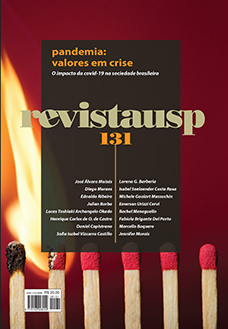
Blog
Researchers seek better care for high mortality respiratory disease
An international program will produce indicators of the quality of care for patients with Chronic Obstructive Pulmonary Disease (COPD) in the health services of Argentina, Brazil and Peru; the disease is the fourth leading cause of death on the continent
The Breathe Well South America project will identify and treat patients with Chronic
Obstructive Pulmonary Disease (COPD) in Argentina, Peru and Brazil – Photo: Pöllö/Wikimedia Commons – CC BY 3.0
Together with researchers from the University of Birmingham (UK), Universidad Científica del Sur do Peru and Universidad de Buenos Aires (Argentina), USP researchers are launching a project that will help identify and treat patients with Chronic Obstructive Pulmonary Disease (COPD) in these three countries. This is the Breathe Well South America project, established by the National Institute for Health and Care Research (NIHR), with the goal of addressing poor and unequal access to quality primary health care for patients with COPD.
Chronic Obstructive Pulmonary Disease is the fourth leading cause of death on the continent and disproportionately affects people living in poverty and, more importantly, at least three quarters of cases remain undiagnosed and therefore untreated. Since last July, the program has been evaluating the current quality of primary care for COPD in these countries (Argentina, Peru and Brazil). In Brazil, the research will take place in the Butantã region, in the municipality of São Paulo (SP), and in the cities of São Bernardo do Campo (SP), Manaus (AM), and Alcântara (MA).
The leader of the project in Brazil is Professor Paulo Andrade Lotufo, from the Medical School (FMUSP) and Director of Community Health of USP. “The results of Breathe Well will make it possible to greatly improve care for the population with respiratory diseases in primary health care, with results that will be unheard-of in indigenous and quilombola populations,” he said.

Indicators
The researchers will then develop a set of COPD quality indicators and an identification and treatment pathway for COPD patients in primary care. They will test their feasibility in different settings and model their cost-effectiveness, as well as the potential impact of health inequalities.
Through these capacity-building activities, the program aims to develop a sustainable and leading research infrastructure in order to provide high-quality COPD research in the future. This will include training individuals in a range of generic, clinical, and research skills and methods.
Researchers will develop sustainable engagement with community members, clinical leaders, and political stakeholders to ensure that the study is rooted in local, national and regional needs, with clear pathways to impact health and health care. They will also cooperate with stakeholders at all levels to ensure that the results of the research are put into practice and to explore opportunities for future studies.
More information: e-mail cpce@hu.usp.br
*From the Clinical and Epidemiological Research Center of USP, adapted for Jornal da USP
**Intern under the supervision of Moisés Dorado
A reprodução de matérias e fotografias é livre mediante a citação do Jornal da USP e do autor. No caso dos arquivos de áudio, deverão constar dos créditos a Rádio USP e, em sendo explicitados, os autores. Para uso de arquivos de vídeo, esses créditos deverão mencionar a TV USP e, caso estejam explicitados, os autores. Fotos devem ser creditadas como USP Imagens e o nome do fotógrafo.







































